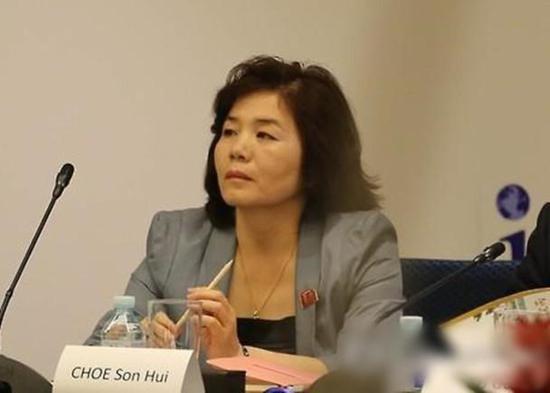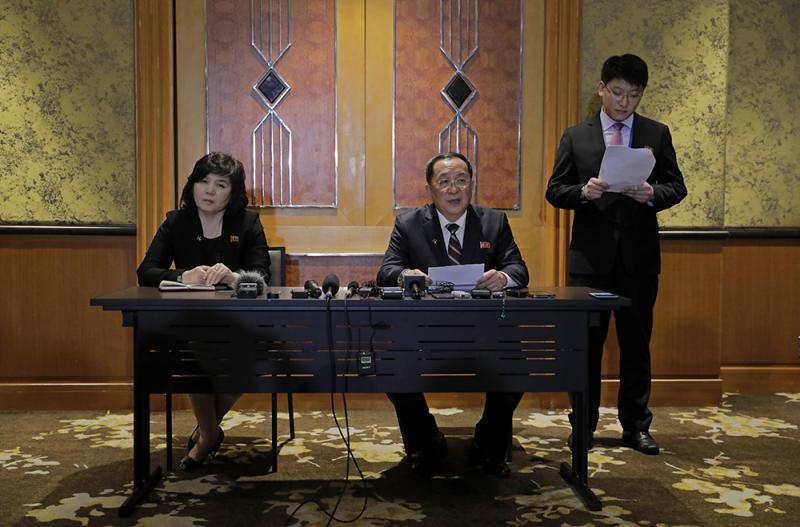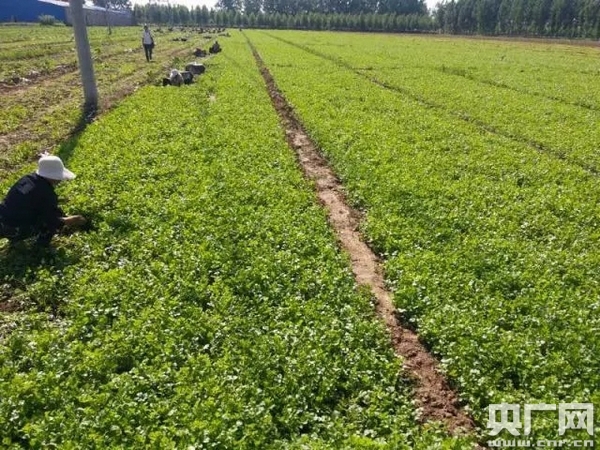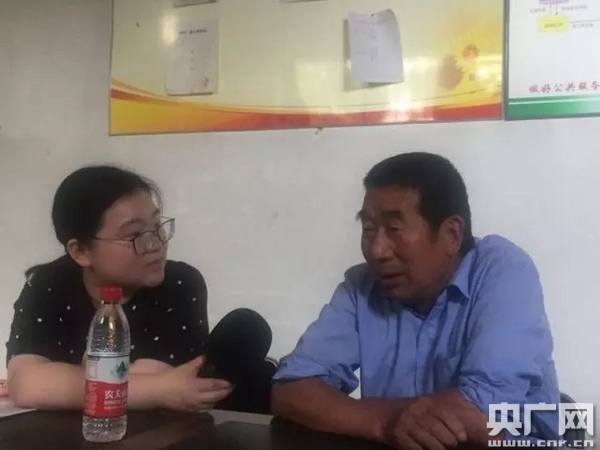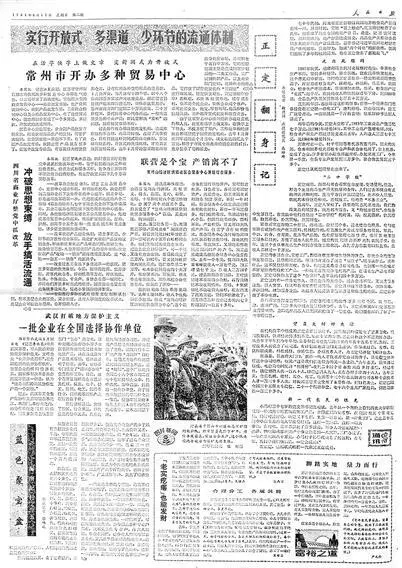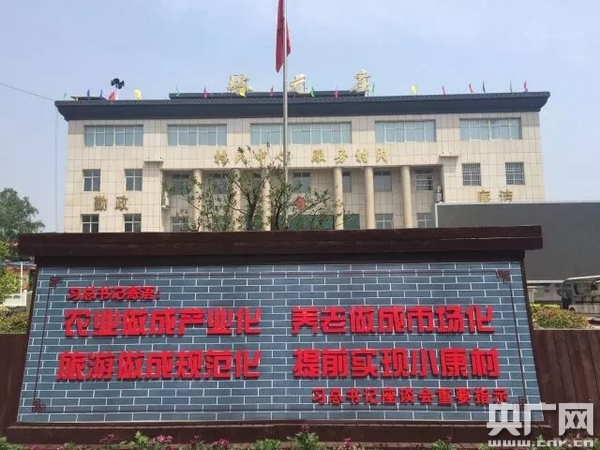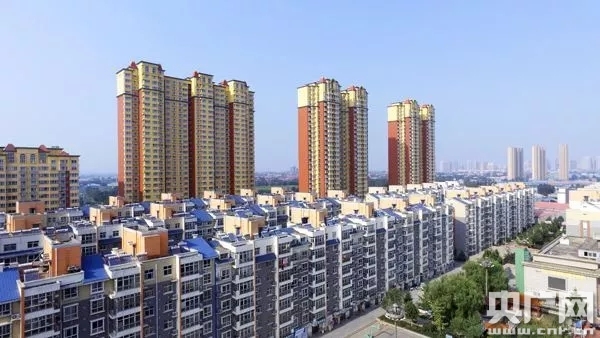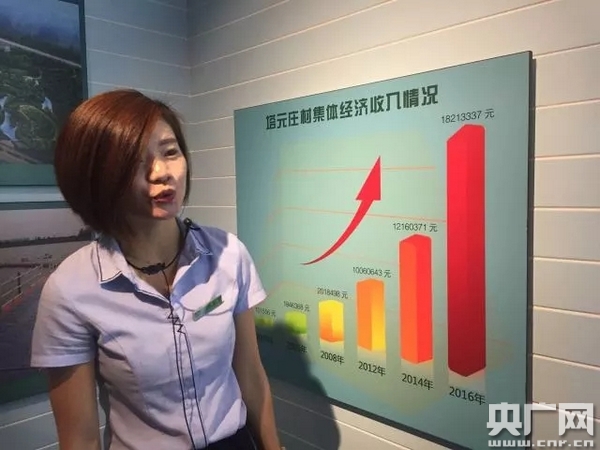2022 Municipal Disabled Persons’ Federation Department Budget
Catalogue
I. Main responsibilities of Xiaogan Disabled Persons Federation
Two, Xiaogan City Disabled Persons’ Federation organization and staffing.
III. Compilation of departmental budget of Xiaogan Disabled Persons’ Federation in 2022
IV. Explanation of the increase and decrease of departmental budget revenue and expenditure in 2022
V. Explanation on the arrangement of funds for the operation of organs
Six, "three public" funding arrangements and changes.
VII. Description of Government Procurement Arrangements
Eight, the occupation of state-owned assets
IX. Description of budget performance such as performance targets of key project budgets
X. Budget preparation of government funds
XI. Explanation on the Budget of New Projects
XII. Explanation of Related Nouns
Thirteen, the Municipal Disabled Persons’ Federation in 2022 departmental budget form:
1, Xiaogan Disabled Persons’ Federation 2022 revenue and expenditure budget summary table
2. Summary of income budget of Xiaogan Disabled Persons’ Federation in 2022
3. Summary of Expenditure Budget of Xiaogan Disabled Persons’ Federation in 2022
4, Xiaogan Disabled Persons’ Federation in 2022 financial allocation budget summary table.
5. General public budget expenditure table of Xiaogan Disabled Persons’ Federation in 2022
6. Basic Expenditure Table of General Public Budget of Xiaogan Disabled Persons’ Federation in 2022
7, Xiaogan Disabled Persons’ Federation in 2022 government funds budget expenditure table.
8, Xiaogan Disabled Persons’ Federation in 2022 financial allocation "three public" expenditure table
9, Xiaogan Disabled Persons’ Federation in 2022 financial special expenditure budget table
Department Budget of Xiaogan Disabled Persons’ Federation in 2022
(including subordinate secondary units)
I. Main responsibilities of Xiaogan Disabled Persons Federation
Xiaogan Disabled Persons’ Federation (hereinafter referred to as the Municipal Disabled Persons’ Federation) is responsible for integrating the three functions of "representation, service and management", giving play to the role of the municipal party committee and the municipal government as a bridge and link between the disabled, representing the common interests of the disabled, safeguarding their legitimate rights and interests, uniting and educating the disabled and serving them. Undertake the tasks entrusted by the government, carry out work for the disabled, mobilize social forces and develop the cause of the disabled. Its tasks are:
1, the implementation of the party and government policies on the work of the disabled, to assist the government to study, formulate and implement the development plan for the cause of the disabled.
2, undertake the daily work of the municipal government coordination committee for the disabled.
3. Listen to the opinions of the disabled, reflect their needs, safeguard their legitimate rights and serve them.
4. Unite and educate the disabled to abide by the law, fulfill their due obligations, carry forward the spirit of optimism and enterprising, self-esteem, self-confidence, self-improvement and self-reliance, and contribute to socialist construction.
5. Carry forward humanitarianism, publicize the cause of the disabled, communicate the relationship between the government, society and the disabled, and promote social understanding, respect, care and help for the disabled.
6. Carry out rehabilitation, education, employment, poverty alleviation, culture, sports, supplies, welfare, social services, barrier-free facilities construction and disability prevention for the disabled, create a good environment and conditions, and help the disabled to participate in social life on an equal footing.
7, to guide the work of the county (city), District Disabled Persons’ Federation, responsible for the supervision and management of specialized associations for the disabled.
8. To undertake other tasks assigned by the Municipal Party Committee, the Municipal Government and the Provincial Disabled Persons’ Federation.
Two, Xiaogan City Disabled Persons’ Federation organization and staffing.
1. Office
Responsible for drafting the work plan and plan of the Disabled Persons’ Federation, drafting the documents and reports of the Disabled Persons’ Federation, undertaking the specific work of the municipal government’s coordination committee on disabled persons’ work, being responsible for the internal and external contact and comprehensive coordination of important administrative affairs of the organ, being responsible for the organization arrangement of relevant meetings and the supervision of meeting matters, and being responsible for secretarial, personnel, confidential, confidential, archives, statistics, finance, information network, family planning, health, greening, comprehensive management of social security, logistics management services, etc.
2. Rehabilitation Department
Organize and implement the rehabilitation work plan for the disabled, investigate the disability status, disability causes and rehabilitation needs of the disabled, coordinate relevant departments to carry out rehabilitation and disability prevention for the disabled, train rehabilitation talents, guide the adaptation and service of assistive devices for the disabled, and undertake the daily work of the municipal rehabilitation office for the disabled.
3, teach the subject
Assist the education department to formulate and implement the education plan for the disabled, carry out employment education and vocational skills training for the disabled, organize the formulation and implementation of the decentralized proportional employment plan for the disabled, guide the establishment of welfare enterprises, guide the employment business and network construction of the disabled in the city, organize the implementation of poverty alleviation for the disabled, and assist in the development of social security for the disabled.
4. Xuanwenke
Organize the formulation and implementation of publicity and cultural and sports work plans for the disabled, do a good job in popularizing law and coordinating services, do a good job in publicity and reporting on the disabled, organize activities to help the disabled in culture, sports, art and society, cooperate with relevant parties to inspect the implementation of laws and regulations on the disabled, guide and manage legal aid for the disabled, be responsible for promoting the construction of barrier-free facilities and letters and visits for the disabled, investigate and master the situation of the disabled, organize and manage the issuance of the Disabled Persons’ Card, and promote Braille.
5. Two subordinate secondary units:
Xiaogan disabled employment service center
Xiaogan Disabled Rehabilitation Center (Xiaogan Disabled Auxiliary Appliance Service Center)
6. Staffing in 2022
Xiaogan Disabled Persons’ Federation has 12 employees, including 11 administrative employees, 1 worker, 12 employees and 12 retirees. There are 14 people in the career establishment (public welfare category I), including 7 people in Xiaogan Employment Service Center for the Disabled, 6 people on the job and 1 retiree; Xiaogan Rehabilitation Center for the Disabled (Xiaogan Aids Service Center for the Disabled) has 7 employees, including 5 on-the-job employees and 1 retiree.
III. Compilation of departmental budgets in 2022
The total number of units included in the departmental budget of Xiaogan Disabled Persons’ Federation in 2022 is 3, including the organ level and two directly affiliated institutions. The details are as follows:
1, Xiaogan Disabled Persons’ Federation (level)
2. Xiaogan Disabled Employment Service Center
3. Xiaogan Rehabilitation Center for the Disabled (Xiaogan Aids Service Center)
In 2022, the total budget revenue of Xiaogan Disabled Persons’ Federation was 5,769,200 yuan, including 5,141,200 yuan from budget appropriation and 628,000 yuan from other expenditures; The total budget expenditure is 5,769,200 yuan, of which: the basic expenditure is 3,157,200 yuan; The project expenditure is 2.612 million yuan.
Four, the Municipal Disabled Persons’ Federation in 2022, the overall situation of the increase and decrease of departmental budget revenue and expenditure.
(A), revenue budget
In 2022, the total budget revenue of the Municipal Disabled Persons’ Federation was 5,769,200 yuan, of which the basic budget was 3,157,200 yuan, an increase of 20,600 yuan compared with 2021. The main reason for the increase was the normal salary adjustment; The special budget is 2.612 million yuan, an increase of 229,000 yuan compared with 2021. The reasons for the increase are as follows: First, the special funds for the disabled are relatively increased according to the adjustment of relevant policies; Second, the special budget for higher-level transfer payments has increased.
(II) Expenditure budget
In 2022, the total budget expenditure of the municipal disabled persons’ Federation department was 5,769,200 yuan.
1. The basic expenditure budget is 3,157,200 yuan, accounting for 55% of the total expenditure budget. among
Personnel expenditure: 2,563,400 yuan.
Expenditure on goods and services: 593,800 yuan;
2. The project expenditure budget is 2.612 million yuan, accounting for 45% of the total budget.
(1) Rehabilitation for the disabled is 674,000 yuan.
(2) Expenditure on other undertakings for the disabled is 1.31 million yuan.
(3) General administrative affairs: 628,000 yuan.
The total budget expenditure in 2022 increased by 249,600 yuan compared with that in 2021, of which: the basic expenditure budget increased by 20,600 yuan compared with that in 2021, mainly due to the policy adjustment of personnel funds; The special budget is 2.612 million yuan, an increase of 229,000 yuan compared with 2021. The reasons for the increase are as follows: First, the special funds for the disabled are relatively increased according to the adjustment of relevant policies; Second, the special budget for higher-level transfer payments has increased.
Five, 2022, the Disabled Persons’ Federation organs operating funds arrangements.
In 2022, the total operating expenses of the municipal disabled persons’ Federation were 593,800 yuan, a decrease of 0.33 million yuan compared with 2021. The main reason for the decrease was the normal floating, which was included in the personnel expenses. In 2022, the operating expenses of the organs mainly include:
Official vehicle operation (maintenance) fee: 74,000 yuan;
The conference fee is 20 thousand yuan
The training fee is 30,000 yuan
Office expenses: 10,000 yuan;
Printing fee: 15,100 yuan;
Water fee: 12,000 yuan;
Electricity fee: 45,000 yuan;
Postal expenses: 12,000 yuan;
Property management fee: 11,200 yuan;
Travel expenses: 81,000 yuan;
Maintenance (protection) fee: 30,000 yuan;
Official reception fee: 20,000 yuan;
Trade union funds: 27,900 yuan;
Welfare expenses: 20,700 yuan;
Expenditure on other goods and services: 75,200 yuan;
Other transportation expenses are 109,700 yuan.
Six, the Municipal Disabled Persons’ Federation "three public" funding arrangements and changes.
In 2022, the budget for the "three fairs" of the Municipal Disabled Persons’ Federation was 94,000 yuan, a decrease of 0.4 million yuan compared with 2021. The main reason for the decrease was the compression of official reception fees.
1, going abroad (border) cost budget:
In 2022, the Municipal Disabled Persons’ Federation spent 0,000 yuan on going abroad (border) on business, and the number of people going abroad (border) was 0, the same as in 2021.
2, official car operation (maintenance) cost budget:
(1) In 2022, the Municipal Disabled Persons’ Federation has no budget for the purchase of buses, and the number of buses reserved is 2, one car is a general official vehicle and the other is a special vehicle for the adaptation of assistive devices.
(2) In 2022, the budget for the operation (maintenance) of the official vehicles of the Municipal Disabled Persons’ Federation is 74,000 yuan, which is mainly used to protect the above two official vehicles, including fuel costs, maintenance costs, crossing and bridge fees, insurance fees, etc. Same as the 2021 budget.
3, official reception budget:
In 2022, the official reception fee budget of the Municipal Disabled Persons’ Federation is 20,000 yuan, which is 4,000 yuan less than that in 2021. The main reason for the decrease is that according to the requirements of relevant departments and based on the basic principle of strict economy, the official reception behavior is reduced year by year and the official reception expenses are reduced.
Seven, the government procurement arrangements:
In 2022, the Municipal Disabled Persons’ Federation arranged a government procurement budget of 954,000 yuan, of which:
1, vehicle service government procurement of 30 thousand yuan;
2, the disabled situation survey 20 thousand yuan;
3. Purchase 100,000 yuan of assistive devices for the disabled;
4, the disabled care service 120 thousand yuan;
5. Accounting, legal and evaluation services related to the cause of the disabled are 140,000 yuan;
6, office facilities repair (engineering) 528 thousand yuan;
7, other office supplies and equipment procurement of 16 thousand yuan.
In 2022, the government procurement budget of the Municipal Disabled Persons’ Federation totaled 954,000 yuan, a decrease of 343,500 yuan compared with 2021. The main reason for the decrease was the policy adjustment of the special budget funds for the disabled at higher levels, and the government procurement budget was also reduced accordingly.
Eight, the occupation of state-owned assets
By December 31, 2021, the assets of Xiaogan Disabled Persons’ Federation totaled 14,683,300 yuan, a decrease of 707,200 yuan compared with 2020, of which: the working capital was 44,900 yuan, accounting for 0.3% of total assets; Fixed assets are 13.558 million yuan, accounting for 92.34% of total assets, and intangible assets are 205,900 yuan, accounting for 1.4% of total assets.
By December 31, 2021, the fixed assets of Xiaogan Disabled Persons’ Federation were 13.558 million yuan, a decrease of 1.1998 million yuan compared with 2020. Among them: 13,334,300 yuan for houses and buildings, 64,700 yuan for general equipment, 0.26 yuan for special equipment, 156,700 yuan for furniture and appliances, and 205,900 yuan for intangible assets.
IX. Description of budget performance of key projects
In order to strengthen the performance management of the unit budget, strengthen the performance concept and expenditure responsibility, and improve the efficiency of the use of financial funds, performance target management, performance tracking, performance evaluation and application of results are incorporated into the whole process of budget preparation, implementation and supervision, so as to manage activities for the purpose of improving the economic, social and other benefits of budget funds, and the budget management model is based on expenditure results. In 2022, of the 2,612,000 yuan declared for the project budget performance of the Municipal Disabled Persons’ Federation:
1. The rehabilitation of the disabled is 674,000 yuan, an increase of 354,000 yuan compared with 2021. The main reason for the increase is the adjustment of the scope of the rehabilitation assistance project for disabled children and the increase of the family subsidy fund project for disabled children;
2. The basic assistive devices for the disabled are adapted to 100,000 yuan, the same as in 2021;
3. The subsidy for the rehabilitation center for the disabled is 350,000 yuan, the same as in 2021;
4. The disabled were supported by 120,000 yuan, an increase of 7,000 yuan compared with 2021. The main reason for the increase was that the number of people supported increased slightly on the basis of 2021;
5. Other undertakings for the disabled are 690,000 yuan, the same as in 2021;
6. The fund for the dynamic renewal of the disabled is 50,000 yuan, the same as in 2021;
7. Add 100,000 yuan to the renovation project of the Municipal Disabled Persons’ Federation;
8. 528,000 yuan was added to the renovation project of the city rehabilitation center for the disabled.
Ten, the government fund budget situation:
In 2022, the Municipal Disabled Persons’ Federation and its subordinate secondary units have no budgetary revenue and expenditure of government funds.
XI. Description of the budget of new projects:
In 2022, the Municipal Disabled Persons’ Federation added two new projects, with non-tax revenue as the source of funds, with a total project fund of 628,000 yuan. The projects are:
1 City Disabled Persons’ Federation Housing Renovation Project 100,000 yuan;
2. Maintenance and renovation project of the municipal rehabilitation center for the disabled is 528,000 yuan.
XII. Explanation of related terms:
(1) Revenue from financial appropriation: refers to the funds arranged in the municipal financial budget and allocated in the current year.
(2) Revenue from budgetary allocation of government funds: refers to the funds allocated in the budget of municipal fiscal funds in the current year.
(3) Basic expenditure: refers to personnel expenditure and public expenditure incurred to ensure the normal operation of institutions and complete daily tasks.
(4) Project expenditure: refers to the expenditure incurred to complete specific administrative tasks and career development goals in addition to basic expenditure.
(five) the main expenditure functional classification subjects used by this department (item level):
Undertakings for the disabled (section 20811): reflecting the government’s expenditure on undertakings for the disabled;
Rehabilitation of the disabled (2081104 items): reflecting the expenditure of the Disabled Persons’ Federation on rehabilitation of the disabled;
Employment and poverty alleviation for the disabled (2,081,105 items): reflecting the expenditure of the Disabled Persons’ Federation on employment and poverty alleviation for the disabled;
Living and nursing subsidies for the disabled (2,081,107 items): reflecting the expenditure of the Disabled Persons’ Federation on living subsidies for the poor disabled and nursing subsidies for the severely disabled;
Expenditure on other undertakings for the disabled (2081199 items); Reflect the expenditure of the Disabled Persons’ Federation on other undertakings for the disabled in addition to the above-mentioned projects.
(VI) "Three Public Funds": The "three public funds" included in the general public budget management of finance refer to the expenses for going abroad (abroad) on business, the expenses for purchasing and operating official vehicles and the expenses for official reception arranged by the municipal departments with the financial allocation from the general public budget. Among them, (1) the expenses for going abroad on business reflect the international travel expenses, inter-city transportation expenses, accommodation expenses, meals, training fees, public and miscellaneous expenses, etc. (2) Official vehicle purchase and operation and maintenance fees, reflecting the purchase expenses of official vehicles (including vehicle purchase tax and license fees), fuel expenses, maintenance fees, crossing fees, insurance fees, safety incentive fees and other expenses; (3) The official reception fee reflects all kinds of official reception (including reception of foreign guests) expenses incurred by the unit according to regulations.
(7) Operating expenses of government agencies: funds used to purchase goods and services to ensure the operation of administrative units (including institutions managed by reference to the Civil Service Law), including office and printing expenses, postal expenses, travel expenses, conference expenses, welfare expenses, daily maintenance expenses, special materials and general equipment purchase expenses, office space utilities, office space heating expenses, office space property management expenses, official vehicle operation and maintenance expenses and other expenses.
XIII. Departmental Budget of Xiaogan Disabled Persons’ Federation in 2022:









XIII. Table of departmental budget performance targets in 2022
Attachment: 2022 municipal departments overall expenditure performance target declaration form. xls
2022 municipal departments overall expenditure performance target declaration form. xls
 1.2022 municipal departments budget project expenditure performance target declaration form-rehabilitation of the disabled. xls
1.2022 municipal departments budget project expenditure performance target declaration form-rehabilitation of the disabled. xls
 2.2022 municipal departments budget project expenditure performance target declaration form-poor disabled assistive devices. xls
2.2022 municipal departments budget project expenditure performance target declaration form-poor disabled assistive devices. xls
 3.2022 municipal departments budget project expenditure performance target declaration form-Xiaogan disabled rehabilitation center funding subsidies. xls
3.2022 municipal departments budget project expenditure performance target declaration form-Xiaogan disabled rehabilitation center funding subsidies. xls
 4.2022 municipal departments budget project expenditure performance target declaration form-disabled care. xls
4.2022 municipal departments budget project expenditure performance target declaration form-disabled care. xls
 5.2022 municipal departments budget project expenditure performance target declaration form-the disabled situation investigation funds. xls
5.2022 municipal departments budget project expenditure performance target declaration form-the disabled situation investigation funds. xls
 6.2022 municipal departments budget project expenditure performance target declaration form-other undertakings for the disabled. xls
6.2022 municipal departments budget project expenditure performance target declaration form-other undertakings for the disabled. xls
 7.2022 municipal departments budget project expenditure performance target declaration form-house cleaning and rectification. xls
7.2022 municipal departments budget project expenditure performance target declaration form-house cleaning and rectification. xls
 8.2022 municipal departments budget project expenditure performance target declaration form-city disabled persons’ Federation rehabilitation center maintenance renovation. xls
8.2022 municipal departments budget project expenditure performance target declaration form-city disabled persons’ Federation rehabilitation center maintenance renovation. xls






























